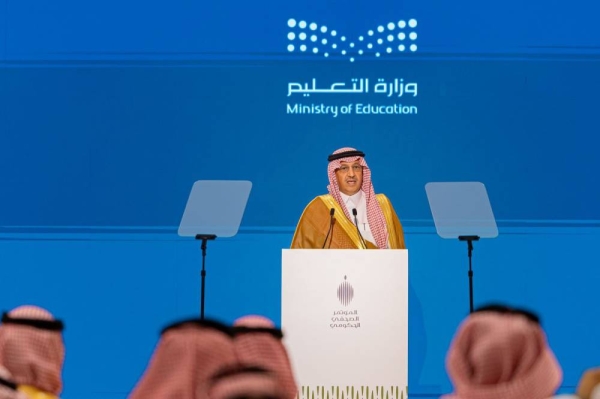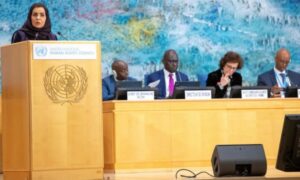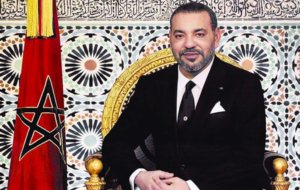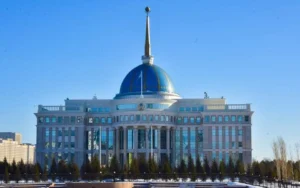Saudi Education Minister Showcases Landmark Reforms in Curriculum, AI Integration and Infrastructure

Riyadh, The Gulf Observer: Saudi Arabia’s Minister of Education, Yousef Al-Benyan, on Wednesday highlighted sweeping advancements in the Kingdom’s education sector, including the integration of artificial intelligence into curricula, the expansion of gifted programs, and major administrative restructuring aimed at boosting school efficiency.
Speaking at a government press conference in Riyadh, Al-Benyan said the National Curriculum Center had developed 27 digital courses, converted 19 into interactive books, and reviewed 50 additional titles, alongside updating more than 6,700 digital learning resources. These measures form part of 19 strategic objectives targeting curriculum modernization, teacher training, AI integration, and the expansion of technical education to cultivate a globally competitive generation.
The ministry has streamlined its educational administrations from 46 to 16 and outsourced operations, maintenance, and environmental quality management to Tatweer Educational Transportation Services Co., allowing educators to focus on academic excellence. New initiatives will also reinforce school-family partnerships and promote core values such as national identity, commitment, and tolerance among students.
On infrastructure, the minister announced the launch of 75 new school projects, maintenance of over 15,000 buildings, and renovation of 1,400 facilities. Early childhood education enrollment has surpassed 36%, while the number of identified gifted students has risen to over 28,000. Specialized schools for gifted learners, developed in partnership with the Saudi Data and Artificial Intelligence Authority and Tuwaiq Academy, will expand to five additional regions next year.
Al-Benyan confirmed that AI curricula have been introduced across all grades, with a dedicated cybersecurity curriculum for high school students. More than 5,200 training opportunities have been provided for teachers and educational leaders, including international programs such as professional master’s degrees. Efforts to enhance language learning include sending 100 teachers to China for Chinese language training and expanding Chinese language instruction to more than 140 public middle schools.
Saudi universities continue to gain global recognition, with 20 institutions listed in the QS World University Rankings 2025 and three in the world’s top 200. Since 2022, the King Salman Scholarship Program has sent 3,388 Saudis to the world’s top 30 universities.
In fostering private sector participation, the ministry has launched the “Madaris” platform, presenting over 500 investment opportunities valued at more than SR50 billion over the next five years.


